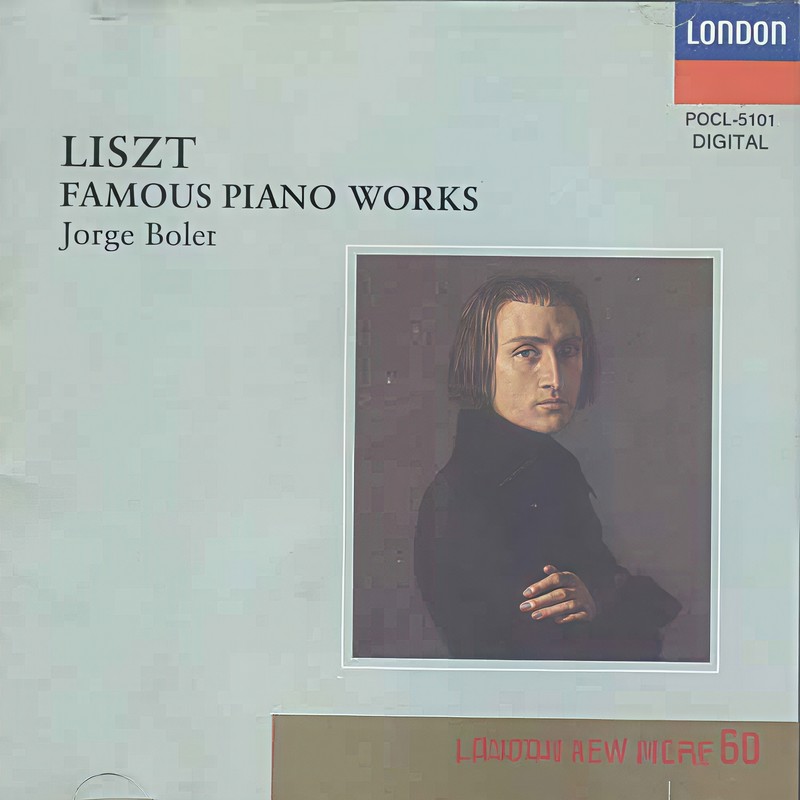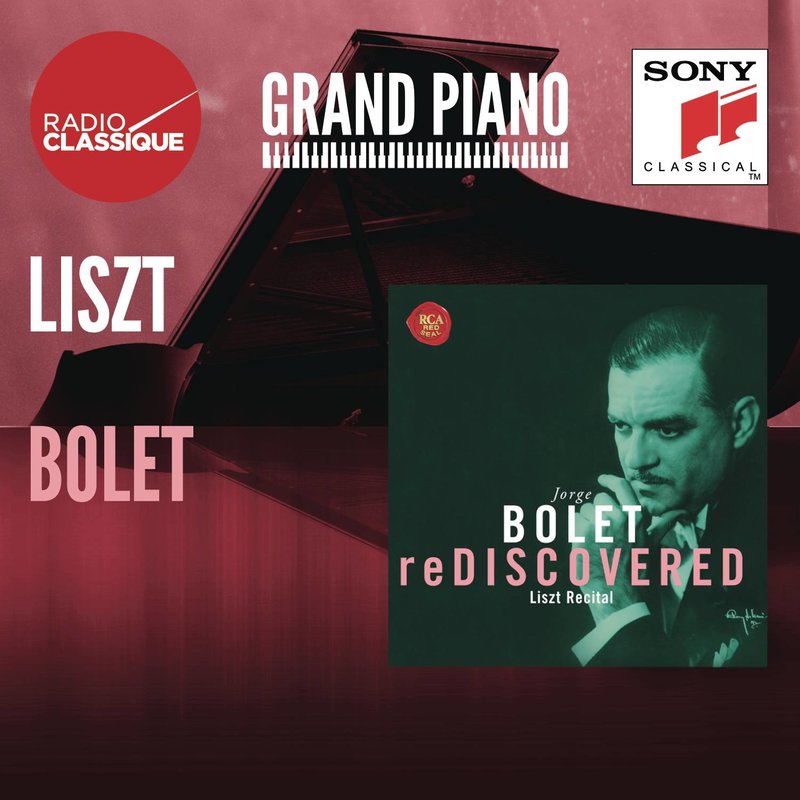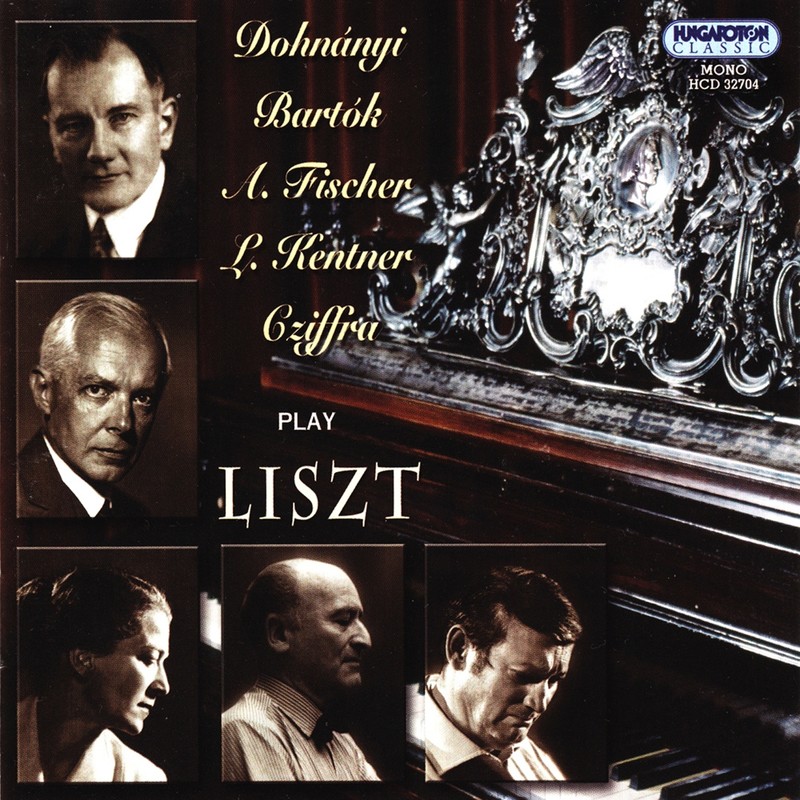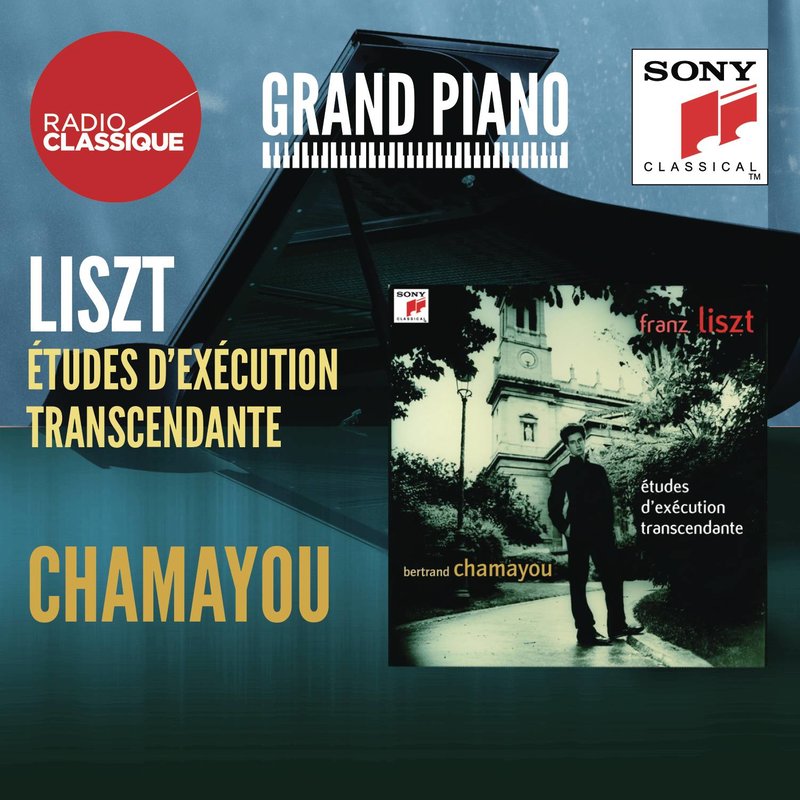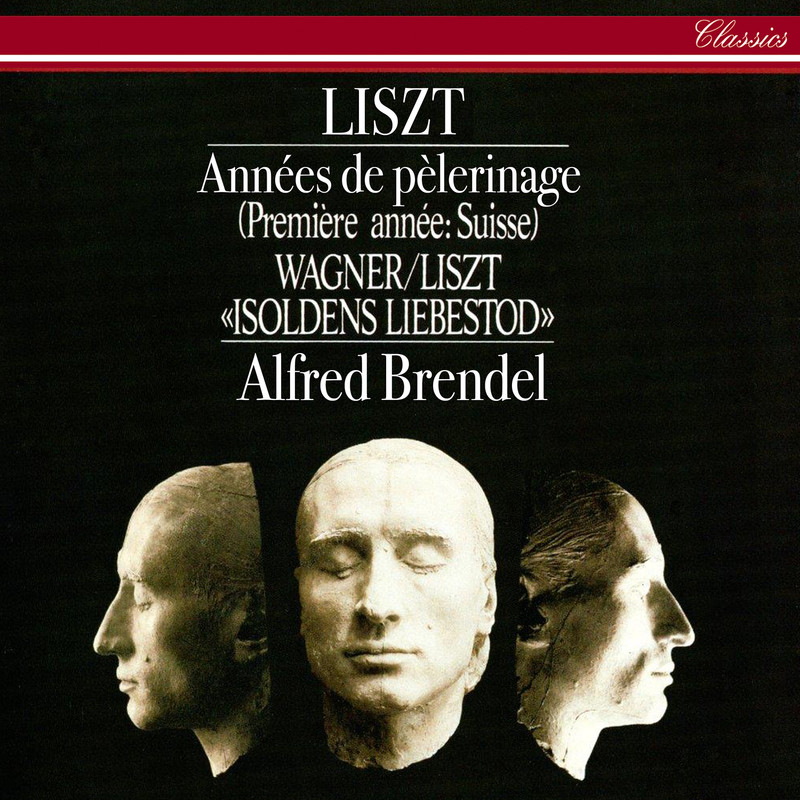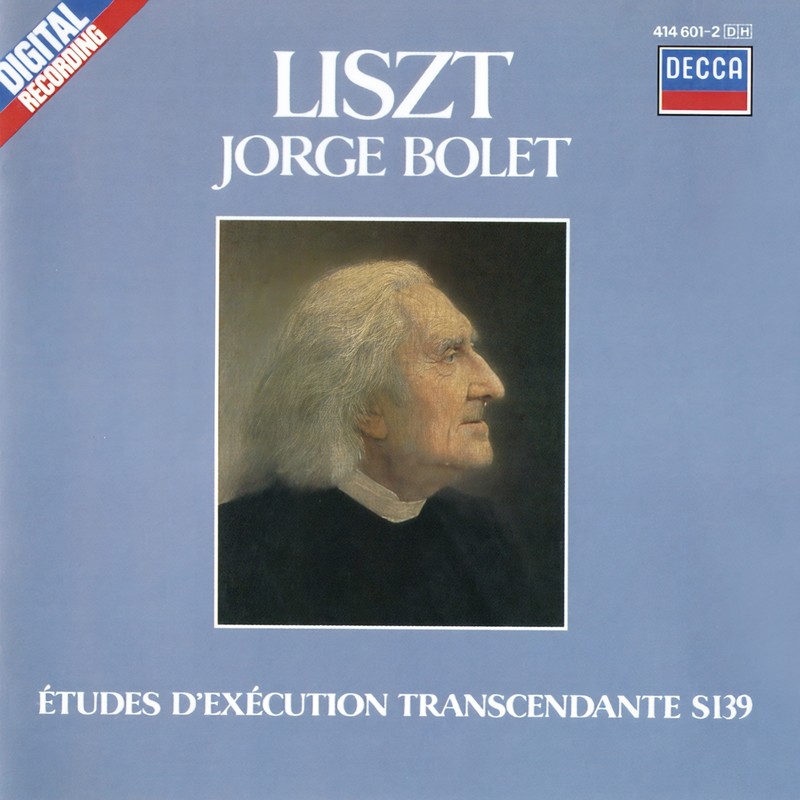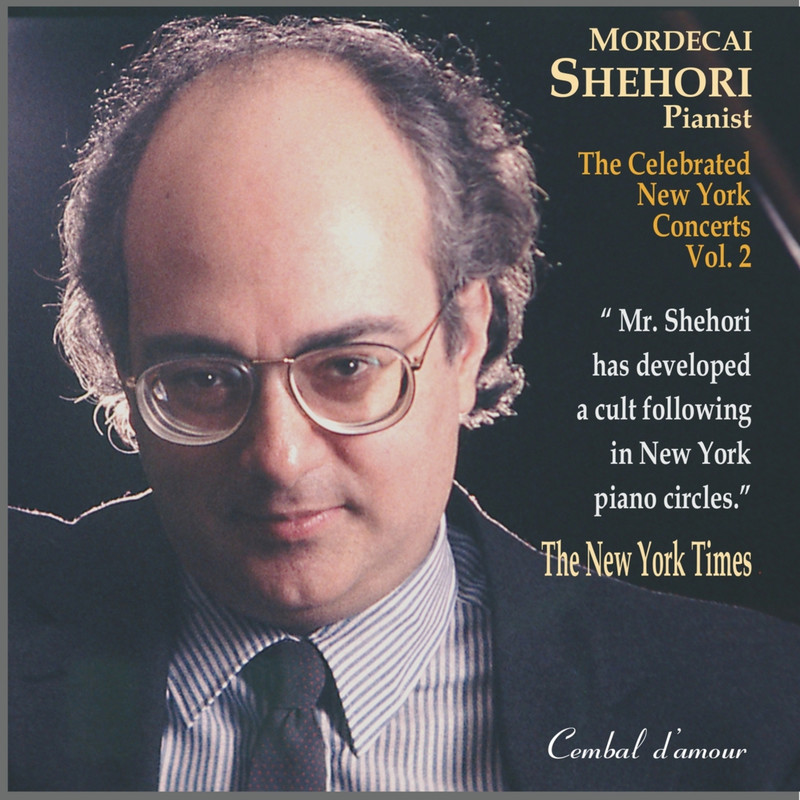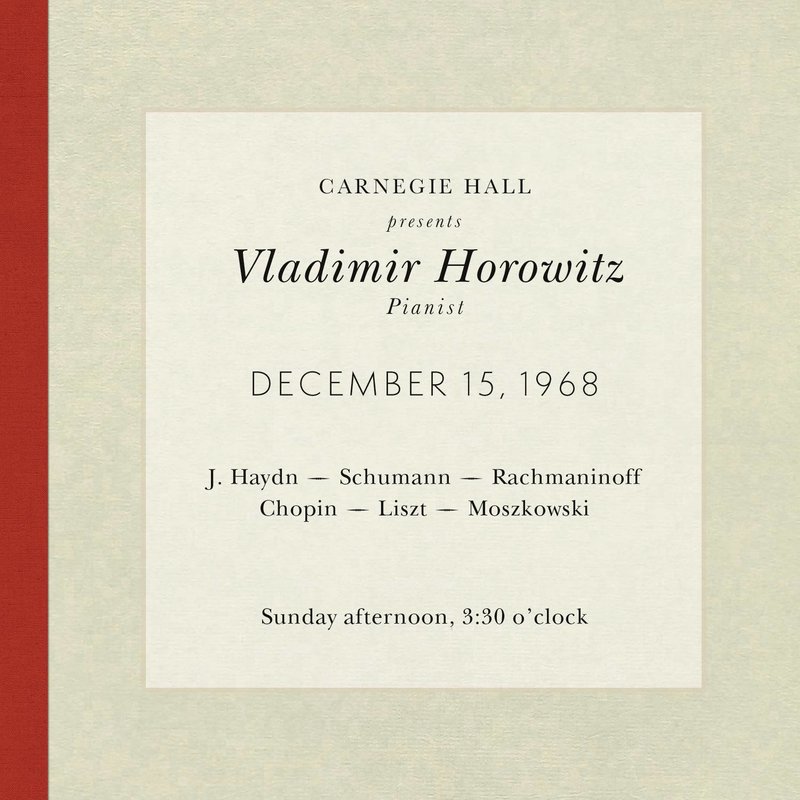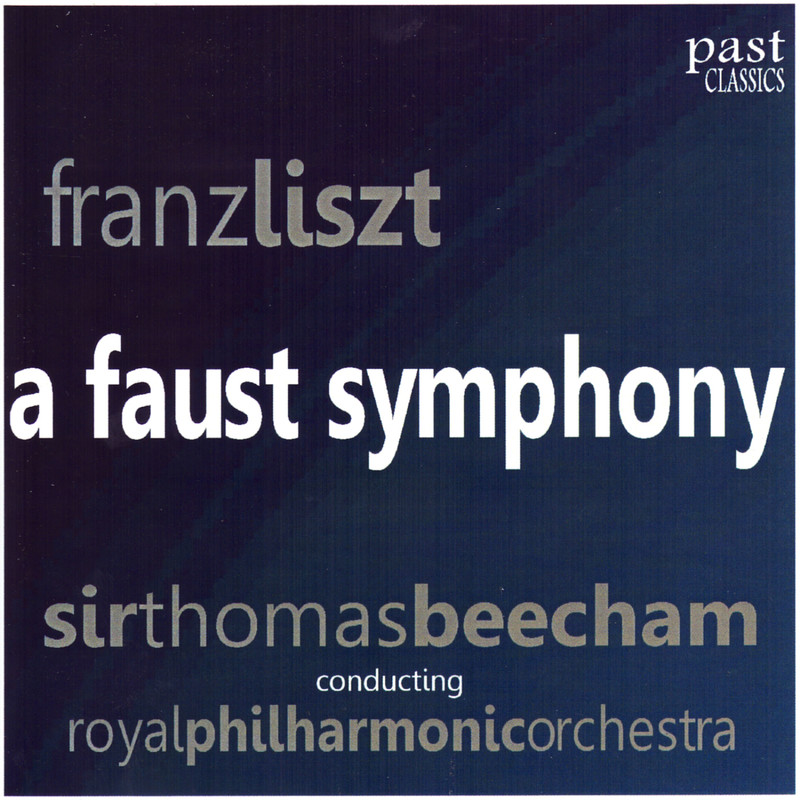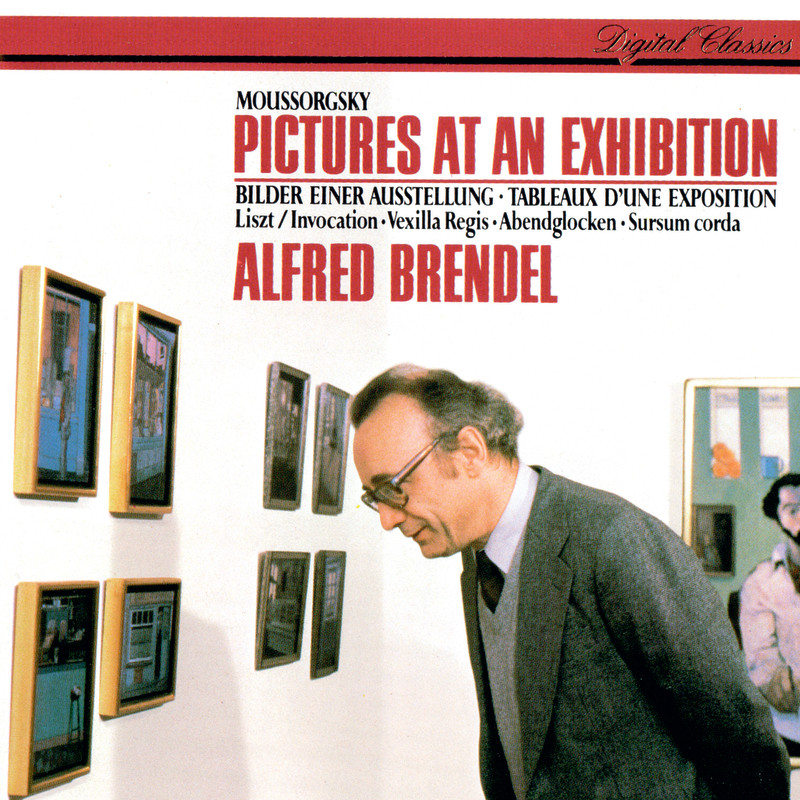
Liszt: The Complete Music for Solo Piano, Vol.53 - Music for piano & orchestra I
Franz Liszt
1998-11-01
专辑简介
Death as an Avenger (1851) by Alfred Rethel (1816-1859)
CDA67401/2
Recording details: July 1998
Budapest Studios of Hungarian Radio, Hungary
Produced by Tryggvi Tryggvason
Engineered by Tryggvi Tryggvason
Release date: November 1998
Total duration: 157 minutes 14 seconds
'Exemplary, and superbly recorded' (BBC Music Magazine)
'Howard's dedication is clear in all his playing here, with clear, crisp articulation vividly caught in finely balanced sound' (The Guardian)
'Hyperion's production, as always, is superb. For the Lisztian, this is indispensable' (Fanfare, USA)
Allowing for arrangements of other composers’ works, Liszt’s surviving œuvre for piano and orchestra comprises some fifteen pieces, and the earlier version of Totentanz is so different from the final conception that we must extend the total to sixteen, and to seventeen if Liszt’s contribution to the Ungarische Zigeunerweisen (Konzert im ungarischen Styl) is considered proven. There are other Liszt works for piano and orchestra which may well have existed, or which we know he performed, but which have not come down to us: two concertos that he wrote as a teenager have disappeared, and concertante versions of five of his major solo pieces are mentioned in correspondence or by publishers (Clochette Fantasy, Puritani Fantasy, Niobe Fantasy, El Contrabandista and Heroischer Marsch im ungarischen Styl) but still remain tantalizingly undiscovered. Of the music we have, Liszt himself played very little in public—just three works, in fact—and he did not see much of it through the press.
It is easy to imagine the teenage Liszt, in his early conquest of the musical world, being asked to produce works of his own to play with orchestra, and we know that something was produced quite quickly, because there are many contemporary accounts of Liszt playing unspecified concertos of his own composition. But the earliest surviving concertante works were completed in the 1830s, by which time Liszt’s mature style had completely evolved. It is difficult to establish incontrovertibly a chronology of composition, but by the mid-1830s Liszt must have drafted the so-called Malédiction Concerto and the Lélio Fantasy, and probably an early version of the First Concerto. Only one of these works was performed by Liszt at this stage, and that was never prepared for publication: the Lélio Fantasy, which Liszt played under Berlioz’s direction in 1834, when it proved a far more successful piece than the extraordinary Berlioz work from which Liszt took his themes. In that same year, Liszt produced his largest concertante piece—the instrumental psalm De Profundis, which he never performed and which was not published in his lifetime, although he returned to it for material for other works in later years. By the end of the decade, Liszt had given several performances of his orchestral version of the famous Hexaméron variations, but this, too, remained unpublished in its orchestral form.
At the end of the 1830s Liszt was working on three concertos. Two of them would wait twenty years or more for their final published form, and the runt of the litter would be abandoned in rather an unsatisfactory state of completion, to be published a century after Liszt’s death. A further work which would occupy a decade in the search for a final form was Totentanz, whose beginnings date from 1849 and whose first complete version contains material derived from, but never identical to, De Profundis. During the 1850s, when Liszt was concentrating on repairing earlier works for what he regarded as their definitive versions, he revised his Capriccio alla turca, adding the opening march and issuing the work as a Fantasy on themes from the Ruins of Athens, completing the work in 1852. At the same time, he created a version with orchestra of his Grand Solo de concert, but, because he later revised the solo version of the piece, he never published either the solo or the orchestral version of his first conception. However, he did issue his one potboiler: the Hungarian Fantasy, which harks back to the Tenth of the Magyar Dalok, and forward to the Fourteenth Hungarian Rhapsody. He also made his arrangements of the Weber Polonaise and the Schubert ‘Wanderer’ Fantasy at this time, and they achieved instant popularity. By the end of the decade, Concerto No 1 had undergone its final revisions after the premiere Liszt played in Weimar under Berlioz, and the final form of Totentanz was ready although Liszt never played it. Concerto No 2 was finally ready in 1861, but by this stage Liszt was only prepared to conduct the work and never to play the solo part. Nor did he play his revised solo part for the Weber Konzertstück which was published in the early 1870s. Incontrovertible evidence of the extent of Liszt’s role in the preparation at Schloss Itter in 1885 of the Ungarische Zigeunerweisen remains elusive, and in any case it is not a work of the front rank, but the piece is not without interest and, on the grounds that Liszt may have had something to do with it, it is included in this recorded survey by way of a bonus. The version for two pianos of the Grosses Konzertsolo—the Concerto pathétique—became very popular, and two of Liszt’s pupils produced versions with orchestra, one of which Liszt took to his heart and then to his desk for comprehensive rewriting and extension, making it one of the last things he completed—although he then muddied the waters by keeping his part in the work anonymous in the published score.
Leslie Howard © 1998
Works on This Recording
1. Concerto for Piano no 1 in E flat major, S 124 by Franz Liszt
■ Performer: Leslie Howard (Piano)
■ Conductor: Karl Anton Rickenbacher
■ Orchestra/Ensemble: Budapest Symphony Orchestra
■ Period: Romantic
■ Written: 1849/1856; Weimar, Germany
■ Date of Recording: 1997-98
■ Venue: Hungarian Radio, Budapest, Hungary
■ Length: 20 Minutes 11 Secs.
2. Fantasy on "Ruins of Athens" (Beethoven) for Piano and Orchestra, S 122 by Franz Liszt
■ Performer: Leslie Howard (Piano)
■ Conductor: Karl Anton Rickenbacher
■ Orchestra/Ensemble: Budapest Symphony Orchestra
■ Period: Romantic
■ Written: ?1848-52; Weimar, Germany
■ Date of Recording: 1997-98
■ Venue: Hungarian Radio, Budapest, Hungary
■ Length: 13 Minutes 16 Secs.
3. Totentanz, S 126 by Franz Liszt
■ Performer: Leslie Howard (Piano)
■ Conductor: Karl Anton Rickenbacher
■ Orchestra/Ensemble: Budapest Symphony Orchestra
■ Period: Romantic
■ Written: 1849/1859; Weimar, Germany
■ Date of Recording: 1997-98
■ Venue: Hungarian Radio, Budapest, Hungary
■ Length: 15 Minutes 46 Secs.
■ Notes: Ver: 1859
4. Grande Fantasie Symphonique on "Lelio" (Berlioz), S 120 by Franz Liszt
■ Performer: Leslie Howard (Piano)
■ Conductor: Karl Anton Rickenbacher
■ Orchestra/Ensemble: Budapest Symphony Orchestra
■ Period: Romantic
■ Written: 1834; Paris, France
■ Date of Recording: 1997-98
■ Venue: Hungarian Radio, Budapest, Hungary
■ Length: 29 Minutes 44 Secs.
■ Notes: The score and parts for this selection were corrected by Leslie Howard for this recording based on the manuscript sources.
5. Malédiction, S 121 by Franz Liszt
■ Performer: Leslie Howard (Piano)
■ Conductor: Karl Anton Rickenbacher
■ Orchestra/Ensemble: Budapest Symphony Orchestra
■ Period: Romantic
■ Written: circa 1840; Switzerland
■ Date of Recording: 1997-98
■ Venue: Hungarian Radio, Budapest, Hungary
■ Length: 15 Minutes 47 Secs.
6. Concerto for Piano no 3 in E flat major, S 125a by Franz Liszt
■ Performer: Leslie Howard (Piano)
■ Conductor: Karl Anton Rickenbacher
■ Orchestra/Ensemble: Budapest Symphony Orchestra
■ Period: Romantic
■ Written: 1835-1839
■ Date of Recording: 1997-98
■ Venue: Hungarian Radio, Budapest, Hungary
■ Length: 13 Minutes 58 Secs.
■ Notes: This selection was prepared for this recording by Jay Rosenblatt and Leslie Howard from the manuscript sources.
7. Grosses Konzertsolo for Piano and Orchestra, S 365 by Franz Liszt
■ Performer: Leslie Howard (Piano)
■ Conductor: Karl Anton Rickenbacher
■ Orchestra/Ensemble: Budapest Symphony Orchestra
■ Period: Romantic
■ Written: ?1850
■ Date of Recording: 1997-98
■ Venue: Hungarian Radio, Budapest, Hungary
■ Length: 14 Minutes 50 Secs.
■ Notes: This score was prepared by Leslie Howard for this recording from the manuscript sources.
8. Polonaise brillante (Weber) for Piano and Orchestra, S 367/R 460 by Franz Liszt
■ Performer: Leslie Howard (Piano)
■ Conductor: Karl Anton Rickenbacher
■ Orchestra/Ensemble: Budapest Symphony Orchestra
■ Period: Romantic
■ Written: 1851; Weimar, Germany
■ Date of Recording: 1997-98
■ Venue: Hungarian Radio, Budapest, Hungary
■ Length: 11 Minutes 28 Secs.
9. Hexaméron for Piano and Orchestra, S 365b by Franz Liszt
■ Performer: Leslie Howard (Piano)
■ Conductor: Karl Anton Rickenbacher
■ Orchestra/Ensemble: Budapest Symphony Orchestra
■ Period: Romantic
■ Written: Paris, France
■ Date of Recording: 1997-98
■ Venue: Hungarian Radio, Budapest, Hungary
■ Length: 22 Minutes 37 Secs.
■ Notes: Liszt's orchestration of this selection was prepared and completed for this recording by Leslie Howard from the manuscript sources. This work was composed in collaboration with Thalberg, Pixis, Herz, Czerny and Chopin.
专辑曲目
1
Carl Maria von Weber: C M von Webers Polonaise brillante S.367 (Tempo di Polacca)
Leslie Howard、Budapest Symphony Orchestra、Karl Anton Rickenbacher
2
Franz Liszt: Piano Concerto No.1 in E flat major S.124 (4. Allegro marziale animato)
Leslie Howard、Budapest Symphony Orchestra、Karl Anton Rickenbacher
3
Franz Liszt: Piano Concerto No.1 in E flat major S.124 (1. Allegro maestoso: Tempo giusto)
Leslie Howard、Budapest Symphony Orchestra、Karl Anton Rickenbacher
4
Vincenzo Bellini: Hexaméron (Morceau de concert "Grandes Variations de bravoure sur la marche des Puritains" S.365a)
Leslie Howard、Budapest Symphony Orchestra、Karl Anton Rickenbacher
5
Vincenzo Bellini: Hexaméron (Morceau de concert "Grandes Variations de bravoure sur la marche des Puritains" S.365a)
Leslie Howard、Budapest Symphony Orchestra、Karl Anton Rickenbacher
6
Ludwig van Beethoven: Fantasie über Motive aus Beethovens "Ruinen von Athen" S.122 - Allegretto - Poco a poco più mosso (Vivo)
Leslie Howard、Budapest Symphony Orchestra、Karl Anton Rickenbacher
7
Franz Liszt: Concerto for piano and strings in E minor "Malédiction" S.121 (4. Animato con agitazione)
Leslie Howard、Budapest Symphony Orchestra、Karl Anton Rickenbacher
8
Franz Liszt: Piano Concerto No.1 in E flat major S.124 (2. Quasi adagio)
Leslie Howard、Budapest Symphony Orchestra、Karl Anton Rickenbacher
9
Ludwig van Beethoven: Fantasie über Motive aus Beethovens "Ruinen von Athen" S.122 (Cadenza del pianoforte)
Leslie Howard、Budapest Symphony Orchestra、Karl Anton Rickenbacher
10
I. Quasi moderato – Sostenuto – Molto agitato – Calmato (1. Quasi moderato "Malédiction")
Leslie Howard、Budapest Symphony Orchestra、Karl Anton Rickenbacher
11
II. Un poco più animato – Un poco agitato – Vivo – Sempre più di fuoco (2. Un poco più animato)
Leslie Howard、Budapest Symphony Orchestra、Ludwig van Beethoven
12
III. Energico nobilmente – Sempre moderato, a tempo rubato – Sostenuto – Recit. Patetico. Senza tempo – Andante lacrimoso (Sempre moderato, a tempo rubato)
Leslie Howard、Budapest Symphony Orchestra、Ludwig van Beethoven
13
Franz Liszt: Piano Concerto No.1 in E flat major S.124 (3. Allegretto vivace)
Leslie Howard、Budapest Symphony Orchestra、Karl Anton Rickenbacher
14
I. Andantino – Recitativo del pianoforte (1. Andantino)
Leslie Howard、Budapest Symphony Orchestra、Karl Anton Rickenbacher
15
I. Tempo di marcia. Moderato (Tempo di marcia: Moderato)
Leslie Howard、Budapest Symphony Orchestra、Karl Anton Rickenbacher
16
II. Allegro – Tempo primo (2. Allegro)
Leslie Howard、Budapest Symphony Orchestra、Ludwig van Beethoven
17
Franz Liszt: Concerto in E flat S.125a Op.posth. (3. Andante)
Leslie Howard、Budapest Symphony Orchestra、Karl Anton Rickenbacher
18
Introduction. Andante – Presto – Allegro – Allegro moderato (Introduction: Andante)
Leslie Howard、Budapest Symphony Orchestra、Karl Anton Rickenbacher
19
Var. 1. Allegro moderato (Paraphrase über Dies irae S.126ii)
Leslie Howard、Budapest Symphony Orchestra、Karl Anton Rickenbacher
20
V. Allegro vivace – Più mosso (5. Allegro vivace)
Leslie Howard、Budapest Symphony Orchestra、Ludwig van Beethoven
21
Franz Liszt: Totentanz (Paraphrase über Dies irae S.126ii)
Leslie Howard、Budapest Symphony Orchestra、Karl Anton Rickenbacher
22
II. Grandioso (2. Grandioso)
Leslie Howard、Budapest Symphony Orchestra、Karl Anton Rickenbacher
23
Var. 4, "Canonique". Lento – Presto (Paraphrase über Dies irae S.126ii)
Leslie Howard、Budapest Symphony Orchestra、Karl Anton Rickenbacher
24
III. Più mosso – Stretta (3. Più mosso)
Leslie Howard、Budapest Symphony Orchestra、Ludwig van Beethoven
25
IV. Andante, quasi marcia funèbre – Tempo giusto. Moderato – Allegro con bravura (4. Andante, quasi marcia funèbre)
Leslie Howard、Budapest Symphony Orchestra、Ludwig van Beethoven
26
I. Inroduction. Extrêmement lent
Leslie Howard、Budapest Symphony Orchestra、Karl Anton Rickenbacher
27
Var. 6. Sempre allegro, ma non troppo – Un poco meno allegro – Cadenza – Presto – Allegro animato
Leslie Howard、Budapest Symphony Orchestra、Ludwig van Beethoven
28
II. Theme. Allegro marziale
Leslie Howard、Budapest Symphony Orchestra、Karl Anton Rickenbacher
29
Hector Berlioz: Grande fantaisie symphonique S.120 (1. Lento)
Leslie Howard、Budapest Symphony Orchestra、Karl Anton Rickenbacher
30
III. Var. 1. Ben marcato (Thalberg)
Leslie Howard、Budapest Symphony Orchestra、Karl Anton Rickenbacher
31
Hector Berlioz: Grande fantaisie symphonique S.120 (2. Allegro vivace)
Classical Artists
32
Va. Var. 3. Di bravura, Allegro animato (Morceau de concert "Grandes Variations de bravoure sur la marche des Puritains" S.365a)
Leslie Howard、Budapest Symphony Orchestra、Ludwig van Beethoven
33
Vincenzo Bellini: Hexaméron (Morceau de concert "Grandes Variations de bravoure sur la marche des Puritains" S.365a)
Leslie Howard、Budapest Symphony Orchestra、Ludwig van Beethoven
34
VI. Var. 4. Legato e grazioso (Herz)
Leslie Howard、Budapest Symphony Orchestra、Karl Anton Rickenbacher
35
VIIa. Var. 5. Vivo e brillante (Czerny)
Leslie Howard、Budapest Symphony Orchestra、Karl Anton Rickenbacher
36
VIIb. Interlude 1. Fuocoso, molto energico – Lento, quasi recitativo (Morceau de concert "Grandes Variations de bravoure sur la marche des Puritains" S.365a)
Leslie Howard、Budapest Symphony Orchestra、Ludwig van Beethoven
37
VIIIa. Var. 6. Largo, KK IIb/2 (Chopin)
Leslie Howard、Budapest Symphony Orchestra、Karl Anton Rickenbacher
38
VIIIb. Interlude 2. [L'istesso tempo] (Morceau de concert "Grandes Variations de bravoure sur la marche des Puritains" S.365a|Interlude 2:|L'istesso tempo)
Leslie Howard、Budapest Symphony Orchestra、Karl Anton Rickenbacher
39
IXa. Finale. Molto vivace quasi prestissimo
Leslie Howard、Budapest Symphony Orchestra、Karl Anton Rickenbacher
40


